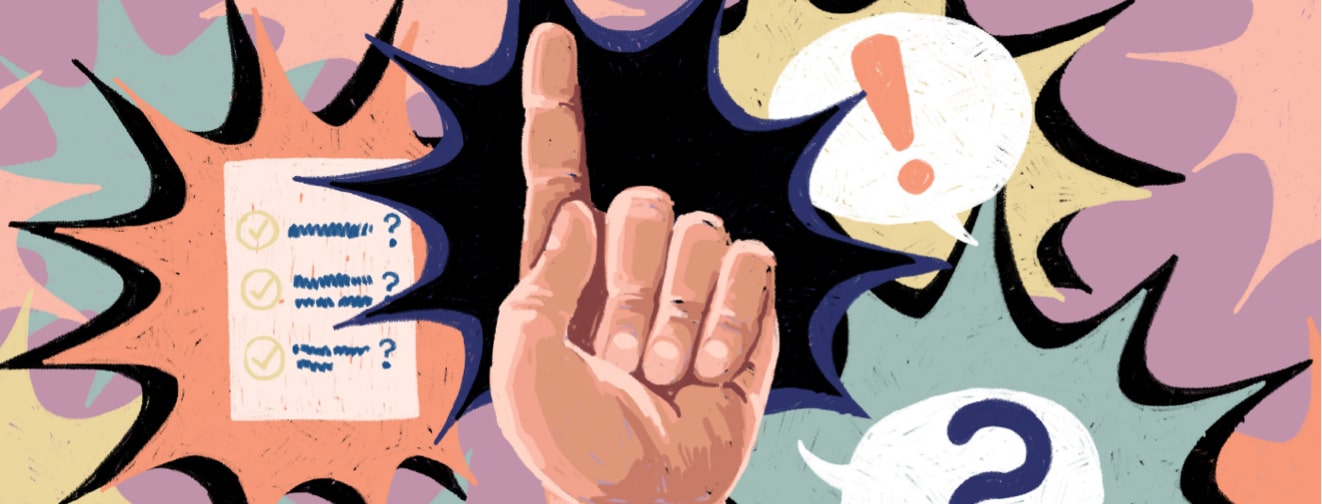Important Questions to Ask Your GI Prior to a Colonoscopy
Colonoscopies and living with IBD go together like milk and cookies – you cannot have one without the other.
It is highly likely that as a Crohn's or UC patient, you have had at least a handful of colonoscopies before your 5-year anniversary, and having one colonoscopy per year on average can be quite daunting. Even the most experienced "scopers" may struggle through the process of getting a colonoscopy.
From doing the prep properly to taking the right steps as a follow-up, there is a lot to consider. So, below are some important questions you want to be sure you ask your GI before and after your next colonoscopy.
Colonscopy questions with Crohn's or UC
Should I stop any medications prior to my colonoscopy?
Depending on your medications, there may be some that you have to stop a day or 2 prior to your procedure. Or, you may be able to actually take any medication you routinely take right up until the time of your scope, with a small sip of water. Make sure to ask your doctor exactly what can be taken and how close to the procedure you can take your last dose.
Are there any dietary restrictions leading up to my procedure date?
Most patients are instructed to limit nuts and seeds and any overly fibrous foods (which can get stuck in the folds of the GI tract) at least 48 hours prior to the colonoscopy. However, it is important to know the full list of foods you should avoid so that your GI can get a clear and accurate picture of everything during the scope.
The handout that details instructions on how to successfully prep for your colonoscopy will most likely have these items listed, but it is always best to double-check to be sure you have a completely clear colon.
Additionally, check with your doctor to see if there are any foods you should avoid after the procedure, as well. We all know how good that first meal post-colonoscopy tastes, but be aware of anything you should avoid so that it does not upset your stomach or cause potentially negative side effects.
What are you looking for/trying to diagnose?
Your colonoscopy may be routine, just to be sure everything is looking good and staying the same, or you can be having a scope to look for a new diagnosis or inspect a certain problem. I always ask my GI both at my appointment when the procedure is scheduled and then when we meet before going back to the room where the scope is being done. I want to have a clear understanding of what her expectations are prior to going under anesthesia.
If you have someone with you for the procedure, it may help to also have them ask questions since you might feel overwhelmed or nervous which may cause you to forget your doctor's responses or forget any follow-up questions you have.
If this, then what?
I also like to have a plan should anything unexpected be found during the procedure. I will ask my doctor, "If it looks like this, then what is the next step?" or "If this shows up, what do we do?" It helps to manage expectations, and makes me feel more confident and comfortable going into the scope knowing the plan for both the best and worst-case scenarios.
There is no such thing as too many questions, so fully understanding any potential outcomes will make the entire process less overwhelming.
What are the next steps?
It may be as simple as a follow-up appointment with your GI in 6 months, or perhaps it is to get lab work within a week, regardless of what your next steps are after the procedure, be sure to clearly identify them with your doctor before leaving the facility. You will most likely be groggy after waking up (thanks, propofol!) so having something to write with is essential.
Your GI may also provide you with summary notes that detail what was found and what are the next steps, but in the event you have to remember everything on your own, having a pen and paper handy is a smart move.
Can I write this down?
Lastly, always ask if you can write down whatever the doctor tells you, regardless of how minor it may be. Going through a colonoscopy can be scary, and our nerves can get the best of us, preventing us from thinking clearly.
I always have a list of questions written down to ask the doctor and I ask to write down what they tell me either before or after the procedure for reference. It's amazing how you feel like you are absolutely fine and will remember everything the doctor says when you get out of your scope only to completely forget it all less than an hour later. Write it down, and it will make you feel much better mentally going into the colonoscopy.
What colonoscopy questions do you ask your GI?
These are just a few key points I have followed over the years while getting colonoscopies that have made the process easier. Do you have any great questions you always ask your GI upon getting any testing done?

Join the conversation